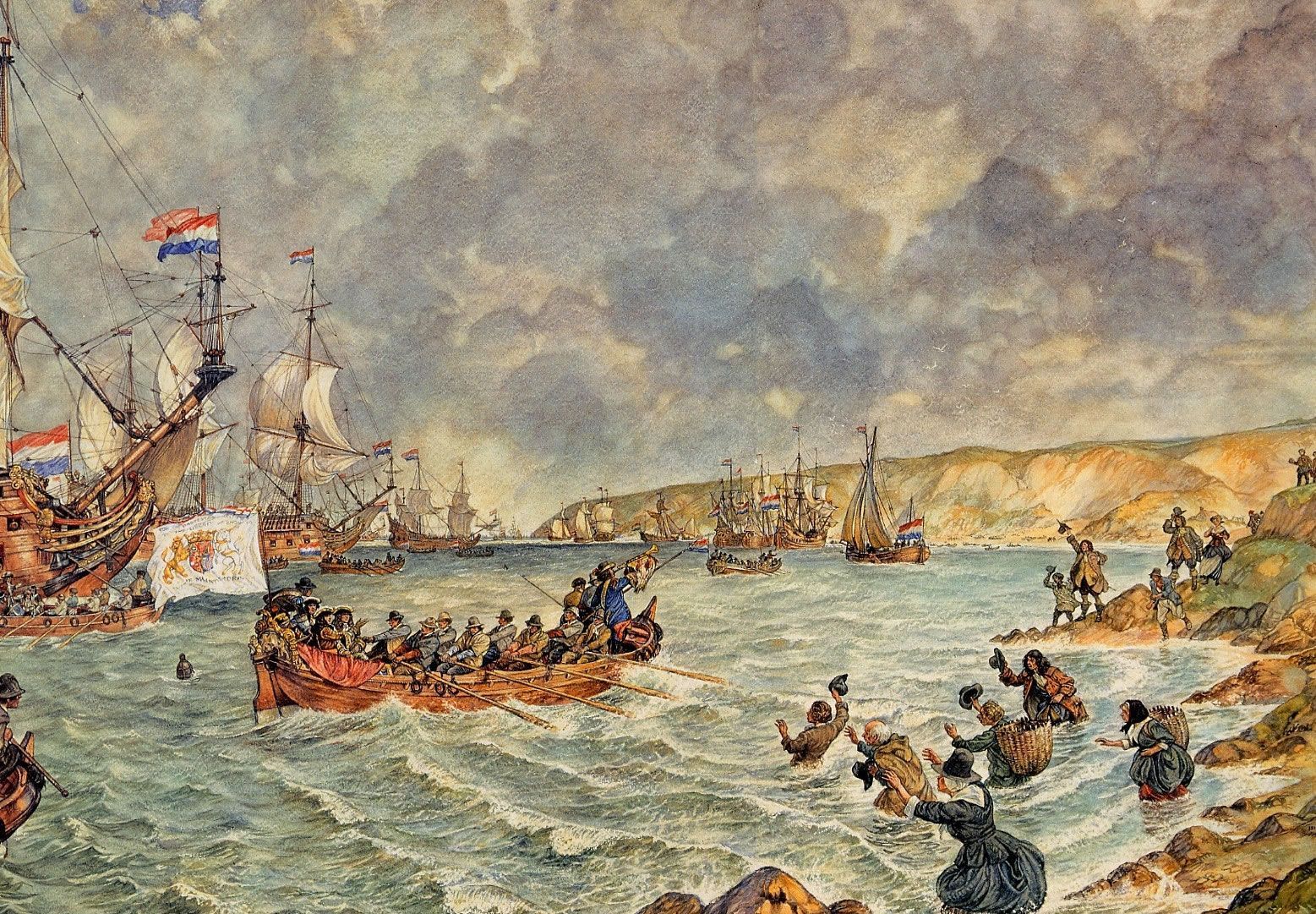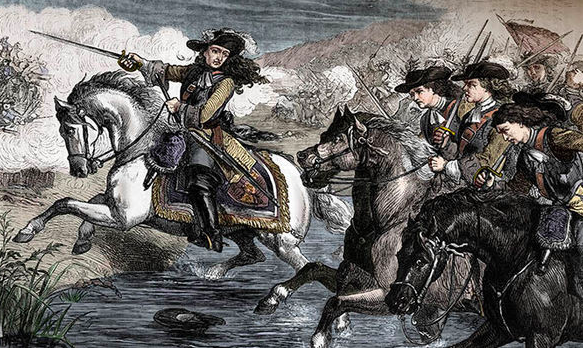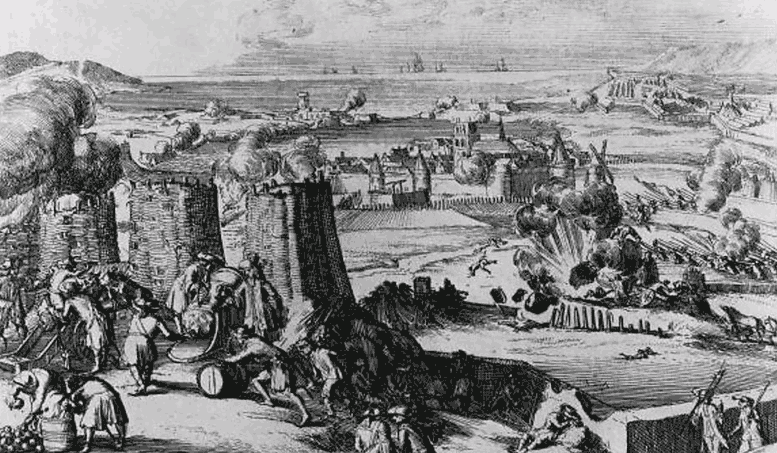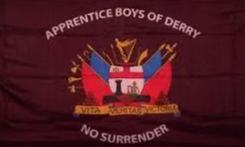Photo AI
Last Updated Sep 27, 2025
The Williamite War, Siege of Derry and Formation of the Apprentice Boys of Derry Simplified Revision Notes for Leaving Cert History
Revision notes with simplified explanations to understand The Williamite War, Siege of Derry and Formation of the Apprentice Boys of Derry quickly and effectively.
350+ students studying
The Williamite War, Siege of Derry and Formation of the Apprentice Boys of Derry
The Williamite War (1688-1691)
-
The Williamite War in Ireland was a significant conflict that took place between 1688 and 1691 during a period of intense political and religious tension in Europe.
-
The war was fought between the forces of King James II, a Catholic monarch, and those of William of Orange, a Protestant leader who became William III of England.
- The conflict was not just about the control of Ireland but also part of a broader European struggle involving England, Scotland, France, and the Netherlands.
- James II had been deposed in the "Glorious Revolution" of 1688 when English nobles invited William of Orange to take the throne. James fled to France, where King Louis XIV supported him.

-
He then traveled to Ireland, where he had significant support among the Catholic population, hoping to use Ireland as a base to reclaim his throne. The war in Ireland became a proxy battle between France, which supported James, and the Protestant coalition led by William.
- The conflict was marked by several key battles, including the Battle of the Boyne in July 1690, where William's forces defeated James's army.
- Although the Battle of the Boyne is often remembered as the decisive battle, the war continued for another year. The Siege of Limerick and the Battle of Aughrim in 1691 were other crucial encounters.

- The war ended with the Treaty of Limerick in October 1691, which allowed the remaining Jacobite (James's) forces to leave for France, marking the end of the Catholic hope for James's restoration.
- The Williamite War had long-lasting effects on Ireland. It solidified Protestant dominance in Ireland, particularly in the north, and ensured that the Protestant Ascendancy would control the country for generations.
- The Orange Order celebrates William III's victory annually on July 12th, a tradition that continues to influence the political and cultural landscape of Northern Ireland to this day.
The Siege of Derry (1688-1689)

- The Siege of Derry, also known as the Siege of Londonderry, was one of the most significant events during the Williamite War in Ireland. The siege took place from December 1688 to July 1689, lasting for 105 days, and became a symbol of Protestant resistance against Catholic rule. The city of Derry was primarily inhabited by Protestant settlers, who were determined to resist the Catholic King James II and his forces.
- The tension leading to the siege began when King James II, after being deposed in England, sought to regain his throne with the help of French and Irish Catholic forces. As his army approached Derry, the city's Protestant leaders, known as the "Apprentice Boys," took decisive action.
- On December 7, 1688, they shut the gates of Derry against James's advancing army, defying the orders of the city's governor, who was ready to surrender. This act of defiance set the stage for a long and brutal siege.
- During the siege, the defenders of Derry endured severe hardships. The city was surrounded, and supplies quickly ran low. Famine and disease spread among the population, and the situation became increasingly desperate.
- Despite these challenges, the defenders refused to surrender. The siege was marked by constant bombardments from the Jacobite forces, but the walls of Derry held firm.
- The turning point came in July 1689, when a relief fleet sent by William of Orange managed to break through the blockade and deliver much-needed supplies to the starving city. On July 28, 1689, the Jacobite forces finally lifted the siege, having failed to capture Derry.
- The successful defence of Derry was celebrated as a great victory for the Protestant cause and became a defining moment in the history of Ulster.
- The Siege of Derry is commemorated annually by the Apprentice Boys of Derry, a Protestant fraternal organisation that honours the bravery of those who defended the city.
- The event is seen as a crucial moment in the Protestant resistance against Catholic dominance and remains an important symbol in the cultural and political identity of Northern Ireland.
Formation of the Apprentice Boys of Derry
- The Apprentice Boys of Derry is a Protestant fraternal society that was formed to commemorate the events of the Siege of Derry in 1688-1689.
- The organisation traces its origins back to the actions of a group of 13 young apprentices who, on December 7, 1688, closed the gates of the city of Derry to the army of the Catholic King James II.

- This defiant act is seen as the spark that ignited the defence of the city during the siege, making these young men heroes in the eyes of the Protestant community.
- The formation of the Apprentice Boys of Derry as an organisation took place in the 18th century, as memories of the siege became a central part of the Protestant identity in Ulster.
- The society was officially established to honour the bravery and determination of those who defended the city against the forces of King James II.
- The Apprentice Boys hold annual commemorations, with the most important event being the "Shutting of the Gates" celebration in December and the Relief of Derry commemoration in August. These events include parades, church services, and the laying of wreaths, symbolising the community's respect for their ancestors' courage.
- The Apprentice Boys of Derry is one of the Loyal Orders, along with the Orange Order and the Royal Black Institution.
- These groups play a significant role in Northern Ireland's cultural and political life, especially among the Unionist community.
- The Apprentice Boys' commemorations are seen as expressions of Protestant solidarity and are deeply tied to the historical narrative of resistance against Catholic rule.
500K+ Students Use These Powerful Tools to Master The Williamite War, Siege of Derry and Formation of the Apprentice Boys of Derry For their Leaving Cert Exams.
Enhance your understanding with flashcards, quizzes, and exams—designed to help you grasp key concepts, reinforce learning, and master any topic with confidence!
125 flashcards
Flashcards on The Williamite War, Siege of Derry and Formation of the Apprentice Boys of Derry
Revise key concepts with interactive flashcards.
Try History Flashcards16 quizzes
Quizzes on The Williamite War, Siege of Derry and Formation of the Apprentice Boys of Derry
Test your knowledge with fun and engaging quizzes.
Try History Quizzes29 questions
Exam questions on The Williamite War, Siege of Derry and Formation of the Apprentice Boys of Derry
Boost your confidence with real exam questions.
Try History Questions27 exams created
Exam Builder on The Williamite War, Siege of Derry and Formation of the Apprentice Boys of Derry
Create custom exams across topics for better practice!
Try History exam builder117 papers
Past Papers on The Williamite War, Siege of Derry and Formation of the Apprentice Boys of Derry
Practice past papers to reinforce exam experience.
Try History Past PapersOther Revision Notes related to The Williamite War, Siege of Derry and Formation of the Apprentice Boys of Derry you should explore
Discover More Revision Notes Related to The Williamite War, Siege of Derry and Formation of the Apprentice Boys of Derry to Deepen Your Understanding and Improve Your Mastery
96%
114 rated
CASE STUDY: The Apprentice Boys of Derry
The Williamite War, Siege of Derry and Formation of the Apprentice Boys of Derry
209+ studying
197KViews96%
114 rated
CASE STUDY: The Apprentice Boys of Derry
Sectarian Tension and Catholic Reaction
266+ studying
196KViews96%
114 rated
CASE STUDY: The Apprentice Boys of Derry
Answering Key Questions
498+ studying
197KViews96%
114 rated
CASE STUDY: The Apprentice Boys of Derry
Sectarian Tension and Catholic Reaction
232+ studying
180KViews